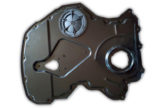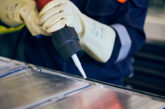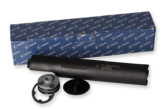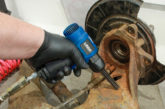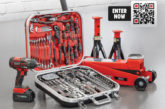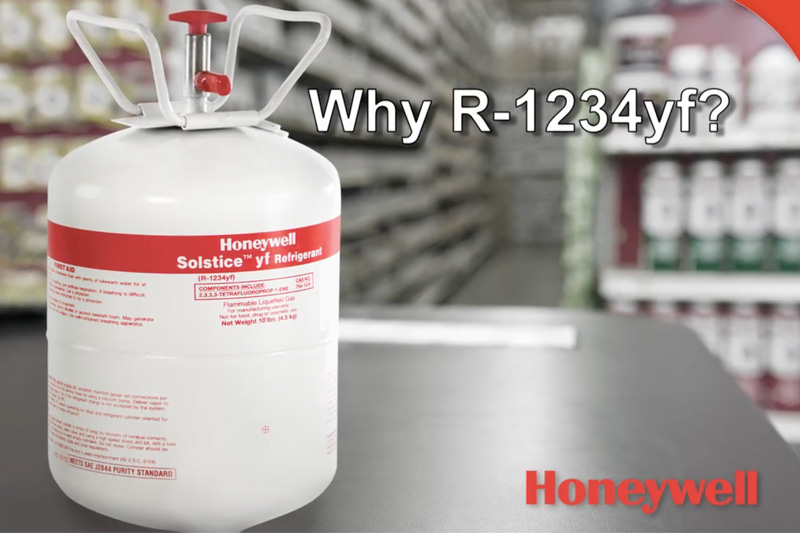
Technicians can learn what equipment and techniques are needed to service vehicles with R-1234yf A/C systems.
Honeywell has announced that it will sponsor, “R-1234yf Training: Understanding the Next Generation Mobile A/C Refrigerant,” a training program series for automotive professionals focused on the safe handling and proper servicing of R-1234yf refrigerant.
The training program consists of three 10-minute videos hosted by Paul DeGuiseppi, former manager of service training for the Mobile Air Conditioning Society (MACS). It will cover system servicing of R-1234yf, as well as service equipment requirements, ensuring that automotive technicians have a working knowledge of how to service vehicles that use R-1234yf, which replaces R-134a. Participants will receive a certificate of completion at the conclusion of the program. The videos in the series are based on the SAE International standard J2845 “R-1234yf Technician Training for Service and Containment of Refrigerants Used in Mobile A/C Systems.”
The auto industry is transitioning from R-134a to next-generation, environmentally preferable alternatives such as Honeywell’s R-1234yf refrigerant, known commercially as Solstice® yf. More than 15 million cars are on the road today using Solstice yf and its said that by the end of 2017, the number of cars in service globally using R-1234yf will reach more than 40 million. Honeywell estimates that nearly 50% of the Model Year 2017 cars sold in the U.S. market will have R-1234yf A/C systems installed in the factory. In addition, European carmakers have also selected R-1234yf as their next-generation A/C refrigerant of choice.
“As demand for cooling solutions with reduced environmental impact grows around the world, Honeywell is committed to working with our industry partners in the factory and the aftermarket to help them transition to preferable cooling solutions such as R-1234yf,” said Rick Winick, business director, Automotive Refrigerants, Honeywell. “This video series provides a free, valuable learning tool that ensures that field technicians can install and service R-1234yf in vehicles that come through their shops.”

